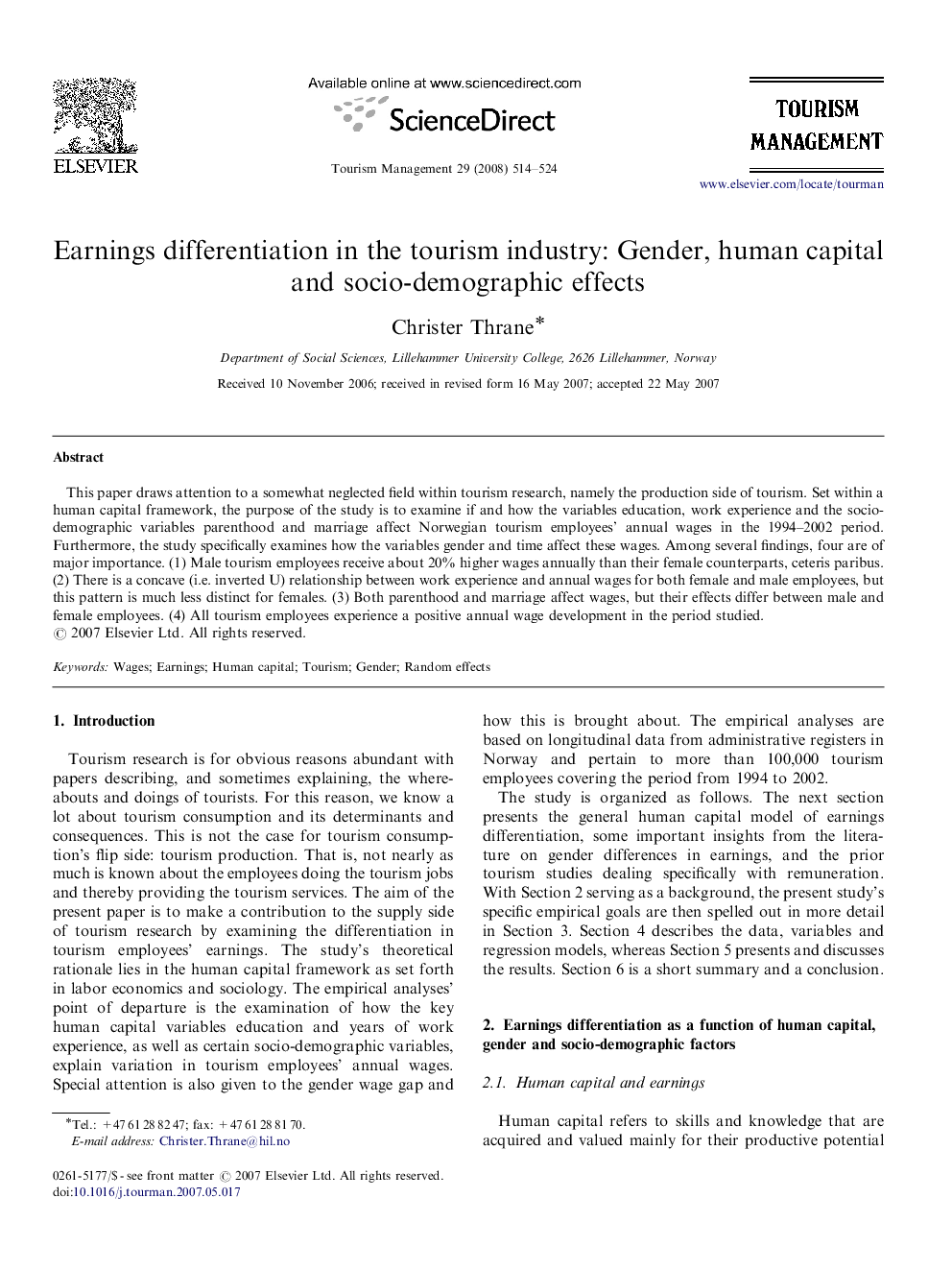| Article ID | Journal | Published Year | Pages | File Type |
|---|---|---|---|---|
| 1013122 | Tourism Management | 2008 | 11 Pages |
This paper draws attention to a somewhat neglected field within tourism research, namely the production side of tourism. Set within a human capital framework, the purpose of the study is to examine if and how the variables education, work experience and the socio-demographic variables parenthood and marriage affect Norwegian tourism employees’ annual wages in the 1994–2002 period. Furthermore, the study specifically examines how the variables gender and time affect these wages. Among several findings, four are of major importance. (1) Male tourism employees receive about 20% higher wages annually than their female counterparts, ceteris paribus. (2) There is a concave (i.e. inverted U) relationship between work experience and annual wages for both female and male employees, but this pattern is much less distinct for females. (3) Both parenthood and marriage affect wages, but their effects differ between male and female employees. (4) All tourism employees experience a positive annual wage development in the period studied.
